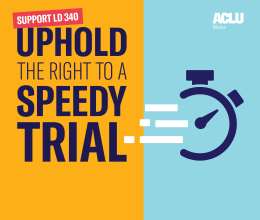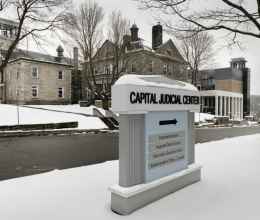
People experiencing homelessness are increasingly harassed and criminalized for trying to survive in public spaces. But when a person loses their housing, they retain their legal rights and freedoms.
The criminalization of homelessness refers to when cities enact and enforce laws to target and punish unhoused people for conducting necessary, life-sustaining activities like sleeping and sitting outside.
Open the menus below to learn more about your rights when experiencing homelessness in Maine cities and towns.
Read more about Grants Pass, the most significant case concerning unhoused people's rights in decades.
DOWNLOAD A PRINTABLE VERSION OF KNOW YOUR RIGHTS: EXPERIENCING HOMELESSNESS IN MAINE
DOWNLOAD A PRINTABLE VERSION OF KNOW YOUR RIGHTS: EXPERIENCING HOMELESSNESS IN PORTLAND






